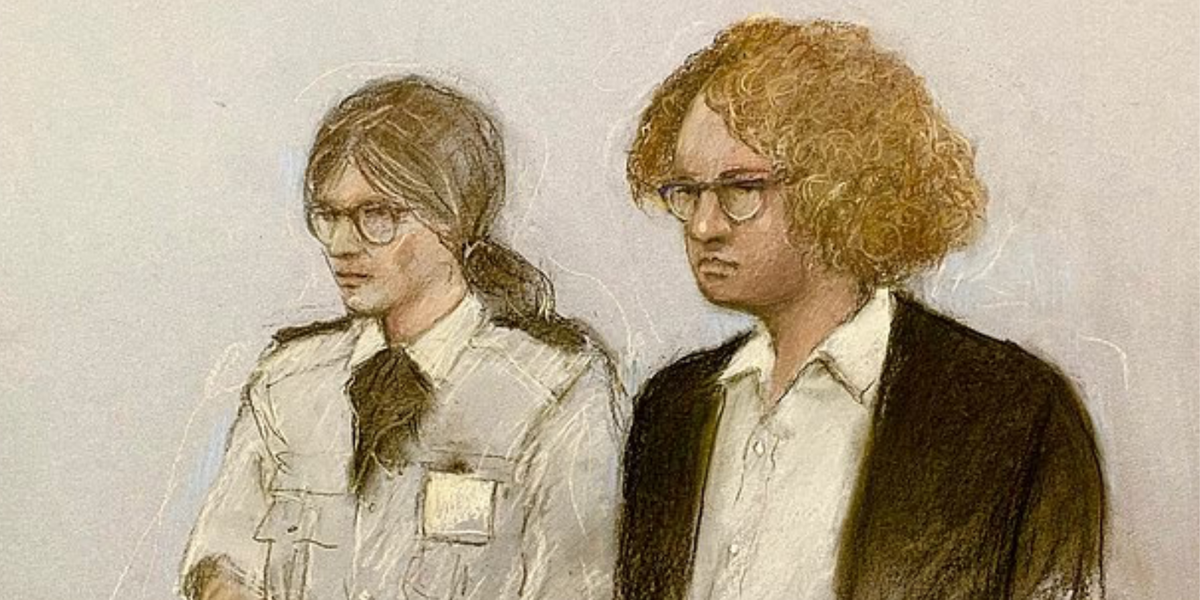Three Things about Islam

What with
- Starmer’s Labour party, Sadiq Khan and, until recently, Humza Yousaf,
- Hamit Coskun and Hatun Tash,
- ‘The Boats’ and ‘Grooming Gangs’, and
- Gaza, ‘From the River to the Sea’, Death-to-the-IDF and Tehran,
Islam is only becoming more significant. It is probably not a bad idea to look over what its significance is.
Islam was a great concern for Europeans during the Crusades. It was the equal and opposite entity, the enemy. Islam might have come to Europe in the eighth century but for Charles Martel at the Battle of Tours in 732, or in the 16th or 17th centuries but for the Habsburgs at the sieges of Vienna in 1529 or 1683. Europe mostly ignored Islam, or dealt with it, and, during the 19th and 20th centuries the European powers propped up Islamic powers or let them fall and, between the 1870s and the 1920s, engaged in great acts of dismemberment which created states where none had ever existed, states with obscure names like Jordan and Iraq. They also eventually inserted a Zionist Israel, the cause of much trouble, as this granted the entire Islamic world an enemy of its own, an enemy within. In England we barely thought about Islam until the fatwa against Salman Rushie in 1989, and a concern with Islam became general after 2001 when the events of 9/11 were allowed to dominate all aspects of security and military policy. Books poured out of the press. Bernard Lewis became almost a household name for numerous books on the subject. Even Roger Scruton contributed a book, The West and the Rest, published in 2003. The literatures have expanded, and much of it has gone the other way around: opposing Lewis and Scruton positions by urging new variants of the Edward Said hypothesis that the Islamic world has been shackled by being imagined as if from the West and not allowed to imagine itself – in the West, at least. Michael Cook’s very good Past Master on Muhammad, published in 1983, was not considered by Oxford University Press to be polite enough about the Prophet, so, whereas it transferred many of the old volumes into a new series of ‘very short introductions’, it commissioned Jonathan A.C. Brown to write a replacement, Muhammad: A Very Short Introduction in 2011. Brown, unlike Cook, was a convert to Islam: supporting the view that only views-from-within should now be permitted. His book was endorsed by Tariq Ramadan, and involved criticisms of the sceptical historical writings of Patricia Crone – and Michael Cook.
The literature is interminable and confusing. So I would like to bring to your attention three old, and very good, insights about Islam. I shall associate each with one of three great writers: Hegel, Belloc and Girard.
1. Hegel
G.W.F. Hegel has five or so pages on Islam in The Philosophy of History, which were lectures given in the 1820s. Hegel sees Islam as a religion of submission because it is a religion of the worship of the one.
The worship of the One is the only final aim of Mahometanism. … The worship of the One remains the only bond by which the whole is capable of uniting. … No particular race, political claim of birth or possession is regarded — only man as believer. … The highest merit is to die for the Faith.
I remember that when I first read this I had just seen Cairo. Hegel barely travelled outside a triangle with corners in Berlin, Paris and Nuremberg. Yet he had an astonishing vision of Islam. “In their deserts nothing can be brought into firm consistent shape.” This, too, was my sense of Egypt: as if everything, all subtlety, was simply burnt off the surface of the sand by the intense sun. Consequently, for Hegel, what was left was fanaticism, and, its earthly analogue, conquest. And: “The Mahometan is indifferent to the social fabric.” Yet there was admiration:
Where… a noble soul makes itself prominent — like a billow on the surging of the sea — it manifests itself in a majesty of freedom, such that nothing more noble, more generous, more valiant, more devoted was ever witnessed. The particular determinate object which the individual embraces is grasped by him entirely — with the whole soul. While Europeans are involved in a multitude of relations, and form, so to speak, ‘a bundle’ of them — in Mahometanism the individual is one passion and that alone; he is superlatively cruel, cunning, bold or generous. Where the sentiment of love exists, there is an equal abandon — love the most fervid. … Never has enthusiasm, as such, performed greater deeds.
But Hegel also had an explanation for our modern vision of the Orient. He argued that once fanaticism cooled (and while the Europeans during the Crusades dubiously idealised themselves as chivalrous), the East lapsed into “the grossest vice”, “sensual enjoyment” and “Oriental ease and repose”.
Almost all of this could be argued with, and probably would be nowadays. Yet it has something in it. And the root idea is that Islam is the religion of the One, the absolute One.
2. Belloc
Hilaire Belloc has a chapter on Islam in his astounding book The Great Heresies, which was published in 1938. Belloc called Islam “not a new religion”, but a “heresy”, a “perversion of Christian doctrine”. Mohammed had taught the unity of God, but denied the Trinity and the Incarnation. Belloc noticed that his contemporaries in England and Europe were complacent about Islam, thinking it would fade away in the face of empire, industry and enlightenment. “It is, as a fact,” he argued, “the most formidable and persistent enemy which our civilisation has had, and may at any moment become as large a menace in the future as it has been in the past.” Why? One reason was that, “Islam is apparently unconvertible.” No one ever converts out of it. The “simplicity and justice of the faith has made it indestructible”. In addition, it “continually recruited” into itself “fighting material of the strongest kind… from the pagan outer darkness”. In a way that we might now find surprising, Belloc took the Crusades to have been “the major tragedy” in the struggle against Islam. If the Crusaders had taken Damascus, the Islamic world would have been broken in two. But Islam had survived, and now in the 20th century there was nothing in it that was “hostile to the development of scientific knowledge or of mechanical aptitude”, “nothing inherent to Mohammedanism to make it incapable of modern science or of modern war”. In other words, enlightened ideas, of a certain sort, were already embedded well enough in the Arab world.
Belloc was alone in predicting that the rivalry between Islam and Christianity would return. He argued that while the West was strong in material terms, it had suffered a spiritual decline that Islam had not suffered. Whereas Muslims continued to worship the One, Belloc observed that the West worshipped itself, the nation, technology, capitalism, social justice. Right. But his leading idea, and the one that we need to recall, is that he found no evidence in all of history for Muslims ever being converted out of Islam. If Hegel suggested that Islam was about the worship of the One, Belloc claimed that as such it was Unconvertible. One or two exceptions only prove the rule. And, we should add, Christians have often converted to Islam. Christianity is such a complicated and fragile entity that without the support of an establishment and a clerisy it soon collapses into pleasant unitarianism and can be assimilated into a less pleasant unitarianism: communism, for instance, or cameralism, or Covidism.
3. Girard
Rene Girard, who died 10 years ago, was one of the great thinkers of the late 20th century. Famous for his books on sacrifice and scapegoating, he made a few comments about Islam after 9/11 that are of great penetration. Girard’s considered view of religion was that monotheism was a great discovery, and that it had shattered the old violent pagan religions that were based on violence. All violence, for Girard, is mimetic, meaning it comes out of a conflict of wills over the same thing, where each will is focused on that thing because the other will is focused on that thing. Monotheism is the conviction, or discovery, that such violence is wrong, and that order depends on recognising a shared condition. All scapegoating and blame is a mistake. And so true religion comes, in the Psalms and Isaiah, out of the consciousness of the victim, the suffering servant. What was sketched in the Old Testament was asserted in the New. Jesus proposed an end to all violence, but no one agrees, as only he as the Son of God could follow such an exacting rule, and so he was killed, setting an example and asking for belief in the significance of his death for the sake of a rule that no one could follow, the rule to abandon violence, and a yet a rule we were commanded to follow.
In Rene Girard, ‘The Bloody Skin of the Victim’, in The New Visibility of Religion (eds. Graham Ward and Michael Hoelzl; London: Continuum, 2008, pp. 59-67), Girard told an interviewer that Islam is not a successor to Christianity but antithetical to it. Christianity is about the suffering of God. However, “Islam excludes the possibility that God could accept to suffer.” In another interview, Girard added the following:
For Islam, God is essentially power. There is a great distance between the people and the omnipotent God. … I would argue that Christianity shows us a God of non-power, something very different even from nonviolence. God chooses not to use the power he has but instead to leave humanity free. The question is whether people will be capable of exercising this freedom. I think the great mistake of Christianity today is to try to reassure people, to make things more palatable. They think that people want to be reassured. No. They want the truth!
So, if Hegel told us that Islam is worship of the One, and Belloc told us that Islam is Unconvertible, Girard told us that Islam is about Power. It seeks not to integrate. Certainly not to sacrifice itself. It seeks to conquer.
Coda
These are three truths about Islam that seem to illuminate it in such a way, perhaps, that we can begin to see the fundamental nature of what separates us from it. (Three? “Never say three!” I seem to recall reading in the Quran.) Now, there is something magnificent about unconvertible believers in the one power. But there is something about this that does seem to be orthogonal, at best, or antagonistic, at worst, to the lapsed Christian mind of the West. We are torn in our response, not sure whether to be Liberal or Christian. If we are Liberal, we have to tolerate, and hope that toleration will encourage Muslims to secularise or privatise their religion, as Christians have done, and accept a Liberal order. But, as Belloc saw, a Liberal order is a demoralised order, and it is obvious that some Muslims see an opportunity in the disarray of the West. An opportunity to establish the power of the unconvertible worshippers of the one. Now, I live in an Islamic country, or a mostly Islamic country, and there is much to be said for its lack of demoralisation: it has a robust, sound, civilisation: corrupt, no doubt, in its higher recesses, excessively strong in some regards, a bit chaotic, but by and large avoiding the insane neuroticism of Western administrative classes. Very respectable: so far, the youth that I teach are unaffected by the psychoses torturing the minds of Western youth — though with technology and modern parents and enlightened education there is the possibility of something bad happening here too. I remember that years ago when I visited Cairo, my friend told me two things about Christianity in Egypt. The first was that Christian taxi drivers used to paint fish on the back of their taxis; whereupon Muslims painted sharks on the back of theirs, chasing and eating the fish. The other was that, if we wanted to find a church, we should look for a vast minaret, locate the mosque, and then look under its shadows for the original small church that the mosque had been erected next to in order to overshadow it. I have no doubt that it is part of the mind of Islam that it rests in absolute succession to and has a right to absolute domination over the world which Christianity has formerly ruled.
By ‘Islam’ I do not mean actual lived lives of good Muslims, and I do not mean the politics of various Arabic and other regimes, and I do not mean Terrorism. These are relative aspects of Islam. I mean Islam as an absolute thing: as a historical singularity. This singularity is an idealisation of a sought-for establishment, a vision of perfection, and a justification for action: also, something which is, at root, a lot less enamoured of variety than we have come to be in the West in the last thousand years.
We may try to incorporate Islam into our many-coloured states, but Islam, at root, wants to incorporate us into its black-and-white high-sunned singular structure of power overlorded by the great god Allah.
One. Unconvertible. Power.
James Alexander is a Professor in the Department of Political Science at Bilkent University in Turkey.














